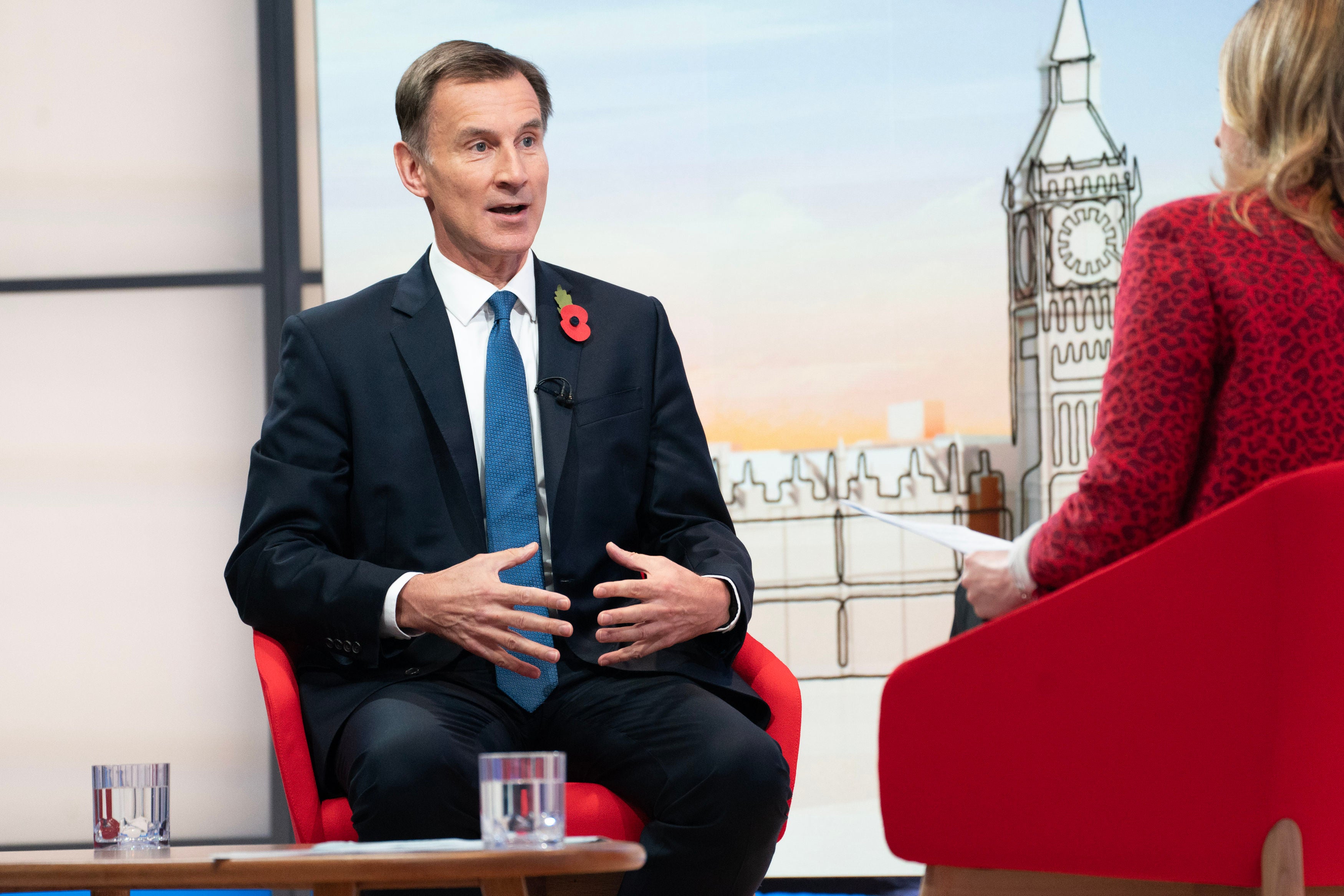There are three main areas of concern ahead of Jeremy Hunt’s autumn statement
Editorial: Ultimately, what will matter on Thursday is whether this new partnership between Rishi Sunak and his chancellor can deliver a calm, competent administration

On Thursday, the country will get its first comprehensive sight of the complex financial burden it faces from fighting Covid-19, coping with the surge in energy prices that has followed Russia’s invasion of Ukraine, and from the economic impact of leaving the European Union.
Jeremy Hunt, the new chancellor, has given a series of interviews confirming that everyone will be paying more tax under the plans he will set out in the autumn statement – a key part of the budgetary process. He has also confirmed that support for energy bills will be targeted towards the most vulnerable when the present scheme ends in April and that he expects the UK economy will go into a recession next year. That recession, he hopes, will be “as short and shallow as possible”.
All this is no surprise. There is an underlying gap in the government’s finances, estimated to be of the order of £50bn a year, that needs to be closed if on reasonable assumptions the size of the national debt is not to rise as a proportion of GDP. Given that there will be further shocks in the future, the prudent thing to do is to take steps now that set the debt on a downward path.
We will get the numbers of how the chancellor proposes to do that on Thursday, and the sensible thing to do is to wait until we have them before leaping to judgement. What is, however, right to do now is to set out some tests that should be applied to these plans. There are three main areas of concern.
The first is whether the help for the vulnerable is both fair and adequate. There is the specific question of what should follow the plan to cut energy bills through this winter: what happens after April. Mr Hunt has recognised that. It cannot be right for the mass of taxpayers to fund the heating costs of those fortunate enough to live in substantial homes.
There will inevitably be limited funds available, and they must be targeted at those who need help most. It is quite reasonable to encourage everyone not to waste energy, but no decent country can allow its vulnerable to freeze.
The second group of issues concern how the increased burden on public finances should be shared. One key question here is the extent to which the tax changes will really encourage those with higher incomes to pay a larger share of the government’s revenues. There have been many instances in the past where the headline rate of tax has been increased but the actual tax take is reduced by creating loopholes to encourage some kind of activity.
Nudging everyone to save more for a pension is one example of that; pushing investment towards smaller, innovative companies is another. This is not to say that governments are wrong to create such incentives. The point is simply that they are often used as a tax dodge.
Spending curbs have to be shared fairly, too. This is a wider matter than the help to pay for heating bills noted above. If public services are to be squeezed, common decency requires that those that need them most should not suffer. There is, however, a broad issue in the fairness between the private sector and the public sector. It is not reasonable to expect public sector workers to do more with less, year after year, and their pay rates need to compensate them as far as possible for the current surge in inflation. However, a sense of fairness between the private sector and the public sector requires that where possible, genuine gains in efficiency should be sought.
To keep up to speed with all the latest opinions and comment, sign up to our free weekly Voices Dispatches newsletter by clicking here
The third area of concern is the longer-term performance of the UK economy. Historically, it has been good at creating employment but poor at increasing real wages. Labour productivity is weak by the standards of most other developed economies. This is a complex mass of interacting issues and there is no top-down generalised solution. But while the government cannot pull a lever and expect radical results – Liz Truss and Kwasi Kwarteng tried that – whatever the chancellor does should be seen in the context of the need to lift the long-term outlook for the economy.
To take just two of the many issues here, it would be good to see what the government proposes on education and training of the workforce, and it would be most helpful if it can find practical ways of smoothing trade flows between the EU and the UK.
Ultimately, what will matter on Thursday is whether this new partnership between Rishi Sunak and Jeremy Hunt can deliver a calm, competent administration. This is the first shot they have at showing they can do so. They need to rise above politics, acknowledge the failings of the past two and a half years, and show they can match action to Hunt’s rhetoric.






Join our commenting forum
Join thought-provoking conversations, follow other Independent readers and see their replies
Comments